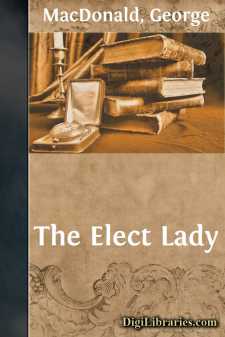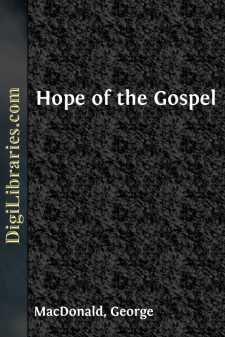Categories
- Antiques & Collectibles 13
- Architecture 36
- Art 48
- Bibles 22
- Biography & Autobiography 813
- Body, Mind & Spirit 142
- Business & Economics 28
- Children's Books 15
- Children's Fiction 12
- Computers 4
- Cooking 94
- Crafts & Hobbies 4
- Drama 346
- Education 46
- Family & Relationships 57
- Fiction 11828
- Games 19
- Gardening 17
- Health & Fitness 34
- History 1377
- House & Home 1
- Humor 147
- Juvenile Fiction 1873
- Juvenile Nonfiction 202
- Language Arts & Disciplines 88
- Law 16
- Literary Collections 686
- Literary Criticism 179
- Mathematics 13
- Medical 41
- Music 40
- Nature 179
- Non-Classifiable 1768
- Performing Arts 7
- Periodicals 1453
- Philosophy 64
- Photography 2
- Poetry 896
- Political Science 203
- Psychology 42
- Reference 154
- Religion 513
- Science 126
- Self-Help 84
- Social Science 81
- Sports & Recreation 34
- Study Aids 3
- Technology & Engineering 59
- Transportation 23
- Travel 463
- True Crime 29
Home Again
by: George MacDonald
Description:
Excerpt
CHAPTER I.
THE PARLOR.
In the dusk of the old-fashioned best room of a farm-house, in the faint glow of the buried sun through the sods of his July grave, sat two elderly persons, dimly visible, breathing the odor which roses unseen sent through the twilight and open window. One of the two was scarcely conscious of the odor, for she did not believe in roses; she believed mainly in mahogany, linen, and hams; to the other it brought too much sadness to be welcomed, for it seemed, like the sunlight, to issue from the grave of his vanished youth. He was not by nature a sad man; he was only one that had found the past more delightful than the present, and had not left his first loves.
The twilight of his years had crept upon him and was deepening; and he felt his youth slowly withering under their fallen leaves. With more education, and perhaps more receptivity than most farmers, he had married a woman he fervently loved, whose rarely truthful nature, to which she had striven to keep true, had developed the delicate flower of moral and social refinement; and her influence upon him had been of the eternal sort. While many of their neighbors were vying with each other in the effort to dress, and dwell, and live up to their notion of gentility, Richard Colman and his wife had never troubled themselves about fashion, but had sought to please each the taste of the other, and cultivate their own. Perhaps now as he sat thus silent in the dimmits, he was holding closer converse than he knew, or any of us can know, with one who seemed to have vanished from all this side of things, except the heart of her husband. That clung to what people would call her memory; I prefer to call it her.
The rose-scented hush was torn by the strident, cicala-like shrilling of a self-confident, self-satisfied female voice—
"Richard, that son of yours will come to no good! You may take my word for it!"
Mr. Colman made no answer; the dusky, sweet-smelling waves of the silence closed over its laceration.
"I am well aware my opinion is of no value in your eyes, Richard; but that does not absolve me from the duty of stating it: if you allow him to go on as he is doing now, Walter will never eat bread of his own earning!"
"There are many who do, and yet don't come to much!" half thought, but nowise said the father.
"What do you mean to make of him?" persisted Miss Hancock, the half-sister of his wife, the a in whose name Walter said ought to have been an e.
"Whatever he is able to make himself. He must have the main hand in it, whatever it be," answered Mr. Colman.
"It is time twice over he had set about something! You let him go on dawdling and dawdling without even making up his mind whether or not he ought to do anything! Take my word for it, Richard, you'll have him on your hands till the day of your death!"
The father did not reply that he could wish nothing better, that the threat was more than he could hope for. He did not want to provoke his sister-in-law, and he knew there was a shadow of reason in what she said, though even perfect reason could not have sweetened the mode in which she said it....












